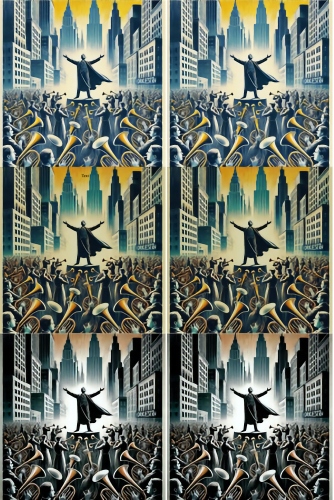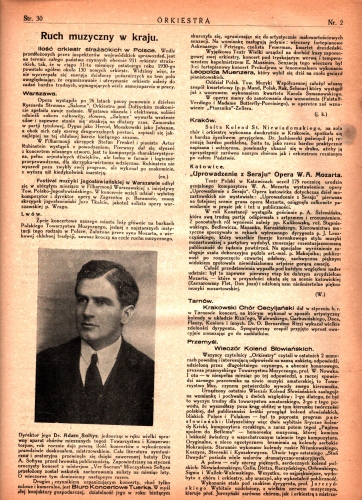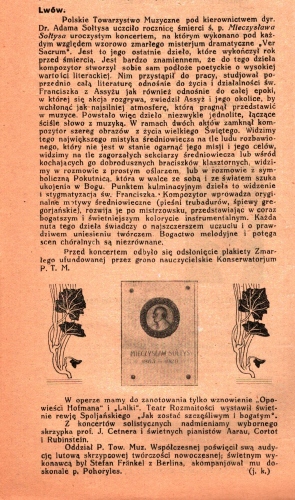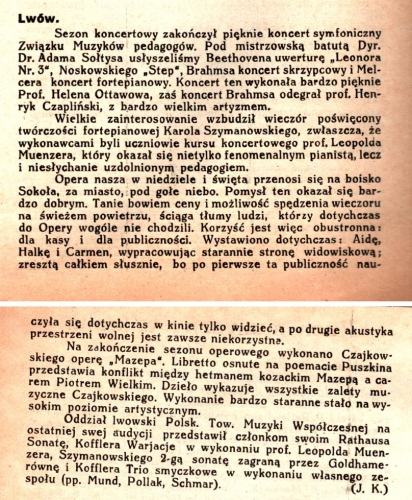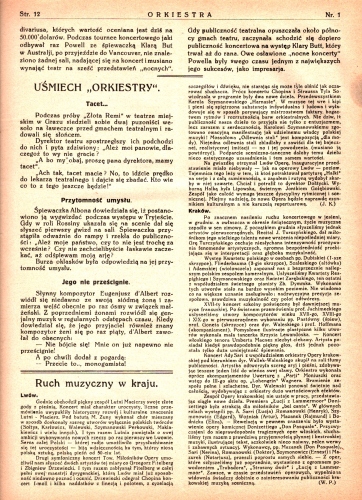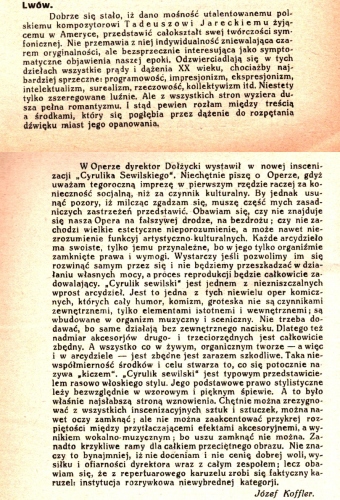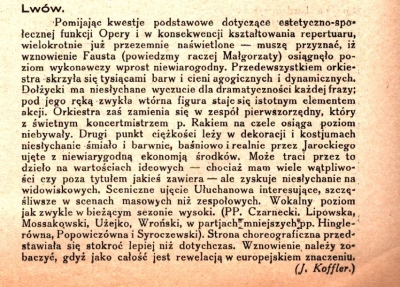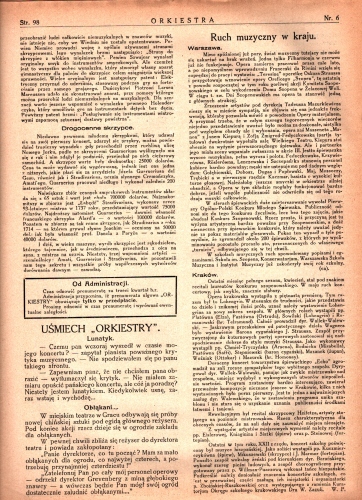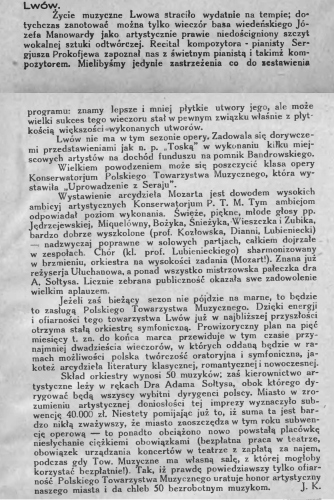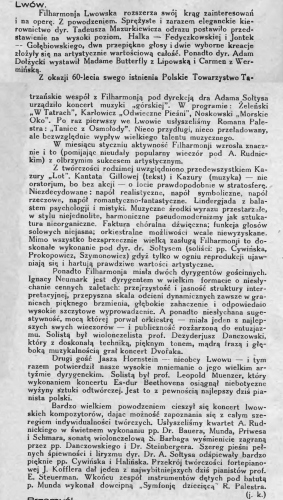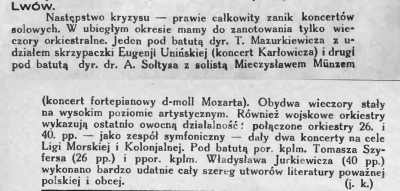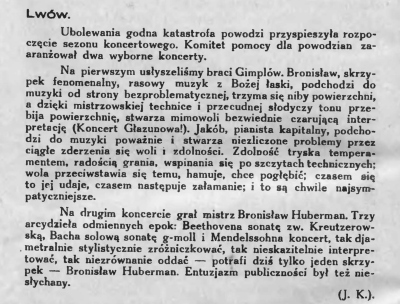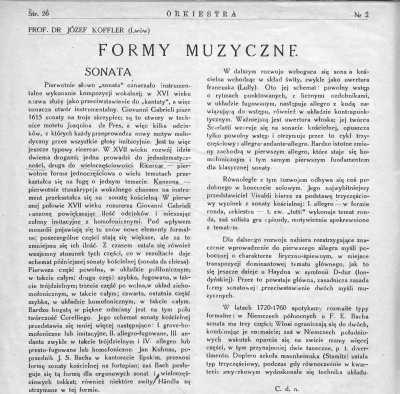
Orkiestra – Musical Forms
This work serves as a distinctive guide to musical structures, systematically introducing readers to the complexities of composition. Koffler begins by discussing basic musical 'microstructures' (motifs, phrases) before advancing to more complex formal issues. He examines arrangement techniques—both homophonic and polyphonic (including counterpoint and various types of imitation)—and explains the principles governing song forms (small and large), variation forms, sonata form, and cyclical forms. Koffler emphasizes that understanding musical forms not only aids in the technical analysis of compositions but, more importantly, leads to deeper and more conscious music appreciation.

Orkiestra – Compendium of Music History
This is a chronological overview of European music history from antiquity to the early 20th century. Starting with ancient musical cultures, especially Greece, Koffler then discusses the development of Gregorian chant, the birth of polyphony and its medieval evolution. He proceeds to describe Renaissance polyphonic schools, the emergence of opera and its development across different European countries. He also covers Baroque instrumental forms, the works of Bach and Handel, Viennese Classicism and the complex world of Romanticism with its leading composers and national schools. The compendium includes the development of Polish music through the centuries, with particular emphasis on the 19th and early 20th century. The final chapters focus on the turn of the century and the beginnings of modern music (Mahler, Strauss, Debussy, Schoenberg, Stravinsky). The material provides a comprehensive overview of the evolution of musical forms, techniques and styles.
![Orkiestra – a column „Ruch muzyczny w kraju” [Musical Movement in the Country]](/upload/2025/03/koncert_ai_1.webp)
Orkiestra – a column „Ruch muzyczny w kraju” [Musical Movement in the Country]
The journal Orchestra, edited by Koffler, contained a column called Musical Movement in the Country, which featured short reports about musical life in all major Polish cities.
Koffler himself often wrote (especially during 1931–1934) notes about musical events in Lwów. He was interested in organizational matters, sociocultural issues, as well as repertoire and the quality of musical performances.
